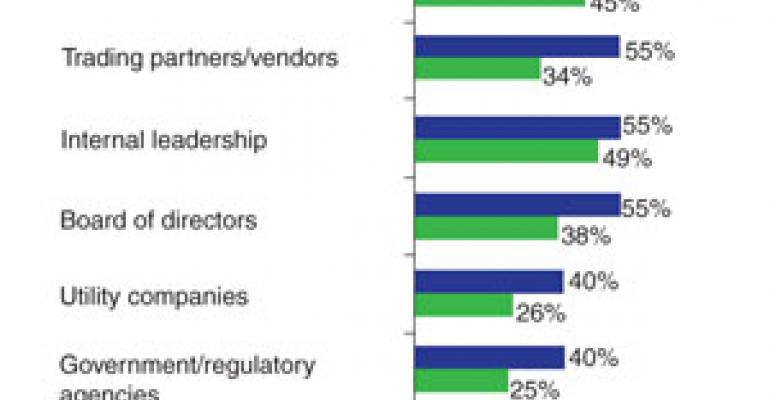Retail companies that have shown annual sales increases of 3 percent or better are more likely to implement sustainability initiatives in the workplace than those firms with smaller growth, a recent study found.
The survey, conducted by Miami-based Retail Systems Research, in partnership with the Retail Industry Leaders Association, examined why businesses, including restaurant operators, are embracing green solutions and the areas in which those firms are willing to invest in eco-friendliness.
Overall, the study, which was released July 22, found that retail businesses were interested in a number of possible benefits related to going green, including saving on energy costs and appealing to consumers looking to support environmentally friendly brands.
For example, in the past 12 months, retailers polled said their overall sentiment about going green had evolved: Energy conservation at the store level has gained more attention, as has the desire to be seen as a caring establishment committed to helping the environment.
Of the 94 retail companies polled, 92 percent said they viewed store energy costs as a challenge that could benefit from a green overhaul, compared with 53 percent of overall respondents a year ago. Additionally, 92 percent agreed a commitment to green practices was not just a good public-relations move, but a genuine opportunity for cost savings.
“More operators are asking what they can do about this today,” said Steve Rowen, co-author of the benchmarking study. “They’re asking how they can turn this into an opportunity to lower costs.”
Approximately 48 percent of retailers said they thought sustainability was strategic to the entire enterprise, compared with 44 percent a year ago.
The study also looked at whether going green would boost brand image among environmentally aware consumers.
“Customers are much more attuned to green [practices],” Rowen said. “There are compelling numbers surrounding being a good ecological retailer, looking at what customers’ wishes are and taking more of a holistic view toward ensuring their kids grow up in a better place.”
Among the retail “winners”—those who reported year-over-year growth of about 3 percent—55 percent said they thought they had an ethical obligation to adopt more environmentally sound practices. In addition, 64 percent said they wanted to project a public perception that they care about the environment, and 50 percent said they wanted to reduce their carbon footprint. The study further found that 59 percent said cost reduction is a factor in the decision to go green.
“In the restaurant industry—in any industry—any opportunity to save on costs is a no-brainer,” Rowen said. “In the foodservice industry, just look at [costs associated with] refrigeration. If they can be mitigated, that’s a real benefit.”— [email protected]




